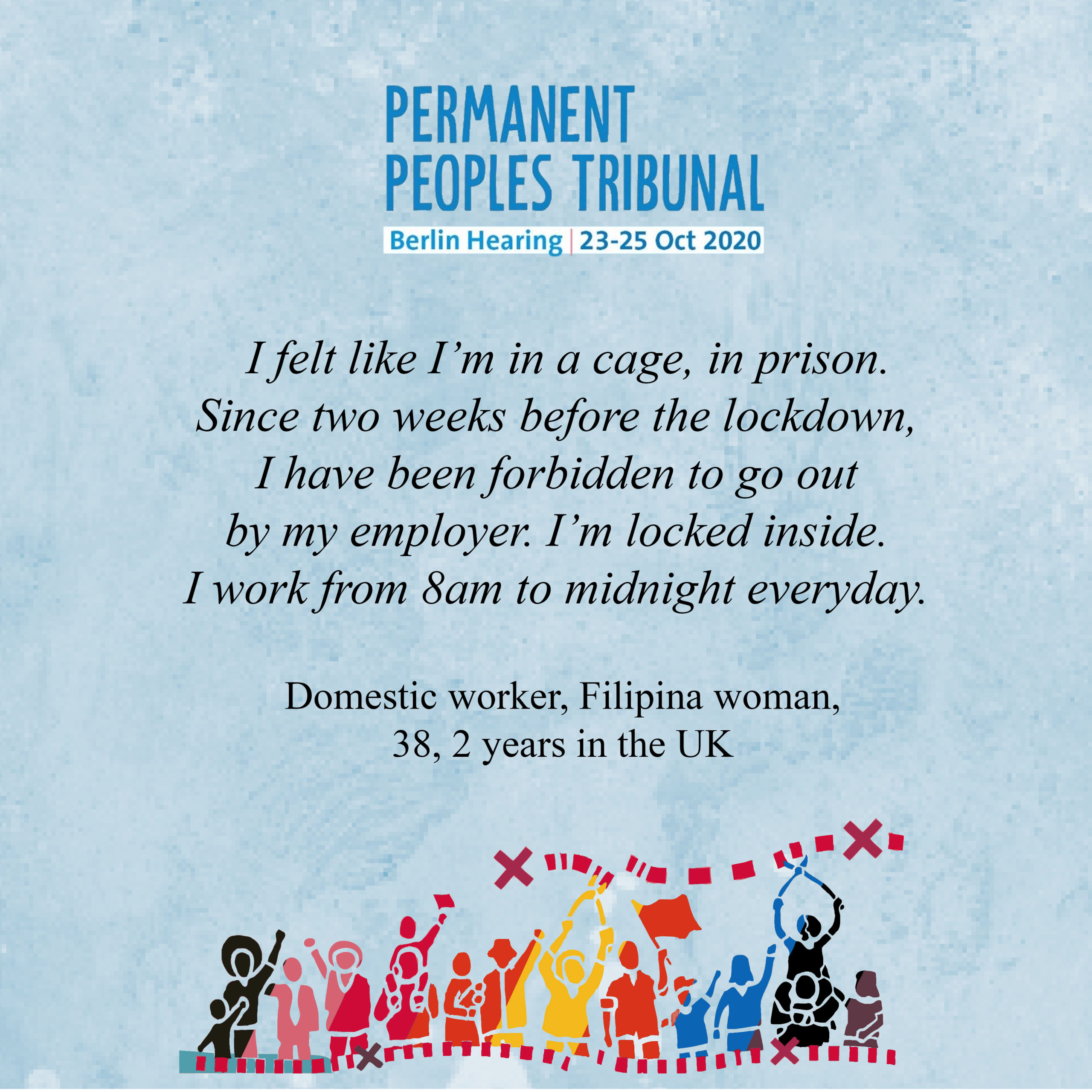The London hearing of the PPT (November 2018) explored the hostile environment and its effects on living and working conditions for migrants and refugees. We refer you to the evidence presented at that hearing for details[1].These effects, as well as the impacts of racism, have been exposed and magnified by the pandemic. Low pay, inability to maintain social distancing and lack of PPE combine with pressure to work while sick to produce high death rates in sectors employing migrant workers, often on zero-hours or agency contracts, factors multiplied by precarious status and the hostile environment. In May the Office for National Statistics found that security guards and taxi drivers had some of the highest death rates from Covid-19, and cleaners, chefs and shop workers all at increased risk. Food processing workers, many of whom are migrants, are key workers. Cramped conditions and inadequate hygiene facilities had led to nearly 1,500 cases linked to food processing plants by late summer. The World Health Organisation’s Covid-19 envoy said Britain’s demand for cheap food could be fuelling the spread of the virus.
The experience of domestic workers during Covid
The Voice of Domestic Workers (VDW) reports that each year, the Home Office issues 19,000 visas for domestic workers – cleaners, cooks, chauffeurs, nannies and personal carers – in private households. Unlike other workers, domestic workers have no route to settlement: their visas are limited to six months. Of 528 surveyed by VDW, over three-quarters have suffered abuse and less than half have enough to eat, but their visa conditions make them likely to become undocumented if they leave employers. During the pandemic, live-in domestic workers have sometimes lost their jobs and homes, while those kept on are often overworked and hungry, wages have been cut, some are confined to their workplaces, with no PPE and social distancing impossible even when required to care for those infected with Covid-19. Twenty VDW members who live out, have lost jobs and income, and cannot get any state benefits or assistance. Some, who have been accepted on to the modern slavery referral scheme (NRM) and are awaiting a final decision, are given £35 per week (€38) to live on but not permitted to work.
As comments this Filipina woman, 38, 2 years in UK :
“I felt like I’m in a cage, in prison. Since two weeks before the lockdown, I have been forbidden to go out by my employer – not to buy food or take exercise. My life evolves in this flat. I’m locked inside. My employers are elderly people from Iraq. I only received two weeks’ salary last month. I asked why, they just ignored me. Before the lockdown, I had one day off a week. Now I have none. I work from 8am to midnight everyday. They let me do online classes with VDW, but no days off. I don’t have enough money to send back home to support my 3 children. I borrowed money from a VDW member and she helped me to arrange remittance. I feel very sad.”

[1]How the hostile environment creates sites without rights, 2019. See the website of the PPT London steering group on migrant rights.

Leave a Reply
Want to join the discussion?Feel free to contribute!